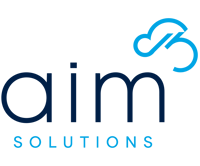The Future of AI in Salesforce: How Einstein GPT is Transforming CRM
2/13/20253 min read


Customer Relationship Management (CRM) has evolved significantly over the years, transitioning from basic customer databases to intelligent platforms that leverage artificial intelligence (AI) for enhanced efficiency and decision-making. As businesses strive to improve customer experiences and operational efficiencies, Salesforce, a global leader in CRM, is taking a major leap with Einstein GPT. This generative AI-powered feature is set to redefine how businesses interact with their customers, automate processes, and derive actionable insights.
In this blog, we will explore the future of AI in Salesforce, focusing on Einstein GPT, its transformative capabilities, and the roadmap for AI-driven CRM growth.
The Evolution of AI in Salesforce
Salesforce has been a pioneer in integrating AI into its CRM solutions. With the introduction of Salesforce Einstein in 2016, businesses began leveraging AI-driven analytics, predictive modeling, and automation to enhance customer experiences. Now, Einstein GPT takes it a step further by introducing real-time, conversational AI with generative capabilities.
Key Advancements Leading to Einstein GPT:
Predictive Analytics – Early AI models in Salesforce analyzed historical data to predict customer behaviors.
Automation & Workflows – AI-powered workflows streamlined repetitive tasks and improved efficiency.
Conversational AI & Chatbots – AI-driven chatbots improved customer interactions through natural language processing (NLP).
Generative AI with Einstein GPT – The next-generation AI now generates personalized responses, automates content creation, and enhances decision-making.
How Einstein GPT is Transforming CRM
Einstein GPT introduces a new era of intelligent CRM automation by combining generative AI with Salesforce's vast customer data ecosystem. This innovation is unlocking unprecedented levels of personalization, automation, and predictive intelligence.
1. Hyper-Personalized Customer Engagement
One of the primary advantages of Einstein GPT is its ability to create personalized customer experiences at scale. With generative AI, businesses can:
Generate real-time personalized emails, messages, and responses.
Create dynamic, AI-powered recommendations based on customer behavior.
Enhance chatbot interactions with context-aware, human-like conversations.
Example: A sales representative using Sales Cloud with Einstein GPT can receive AI-generated email drafts tailored to each prospect’s needs and previous interactions, significantly reducing response time and increasing conversion rates.
2. Intelligent Automation in Sales and Service
Einstein GPT extends beyond customer communication to automate sales and service workflows, helping businesses reduce manual efforts and enhance efficiency.
AI-driven deal summaries and sales insights improve forecasting and pipeline management.
Automated case resolution in Service Cloud reduces response times and enhances customer satisfaction.
Dynamic knowledge base articles are generated in real time to assist customer service agents.
Example: A service agent handling customer queries can instantly generate a relevant knowledge base article or response suggestion using Einstein GPT, improving resolution times and accuracy.
3. AI-Powered Content Generation for Marketing
Marketing teams often struggle with content generation at scale. Einstein GPT empowers marketers by:
Automatically generating blog posts, social media content, and email campaigns.
Crafting AI-driven subject lines, ad copies, and call-to-actions optimized for engagement.
Personalizing marketing campaigns in real time based on customer insights.
Example: A marketing manager can use Marketing Cloud with Einstein GPT to auto-generate a series of email templates personalized for different customer segments, enhancing engagement and conversion rates.
4. Advanced Data Analysis and Decision-Making
With the ability to process vast amounts of structured and unstructured data, Einstein GPT helps businesses:
Detect patterns and trends in customer behavior.
Predict future business outcomes based on historical data.
Offer prescriptive insights to decision-makers for strategic planning.
Example: A business leader can receive AI-generated reports summarizing quarterly customer trends, enabling proactive decision-making to enhance customer retention strategies.
The Future of AI in Salesforce: What's Next?
As AI capabilities continue to evolve, the future of Salesforce AI looks promising, with advancements in:
Deeper AI Integration with IoT – Connecting AI with smart devices to provide real-time customer insights.
AI-Powered Sales Coaching – AI-driven feedback to improve sales strategies.
Self-Learning CRM Systems – AI that continuously learns and improves based on interactions.
Voice-Powered AI Assistants – AI-driven voice assistants integrated into Salesforce for hands-free operations.
Final Thoughts: Why Businesses Must Embrace AI-Driven CRM
Einstein GPT represents a paradigm shift in CRM, making AI a core component of customer engagement, sales automation, and decision-making. Companies that embrace this transformation will:
Gain a competitive edge with hyper-personalized customer interactions.
Improve efficiency through AI-driven automation.
Make smarter business decisions with predictive insights.
Salesforce’s continued investment in AI ensures that CRM will not only be a repository of customer data but a proactive, intelligent system that drives growth. Businesses looking to future-proof their customer engagement strategies must start adopting and integrating Einstein GPT today.
Are you ready to transform your CRM with AI? Let us know how Einstein GPT can empower your business!
Stay ahead in AI-driven CRM innovation!

